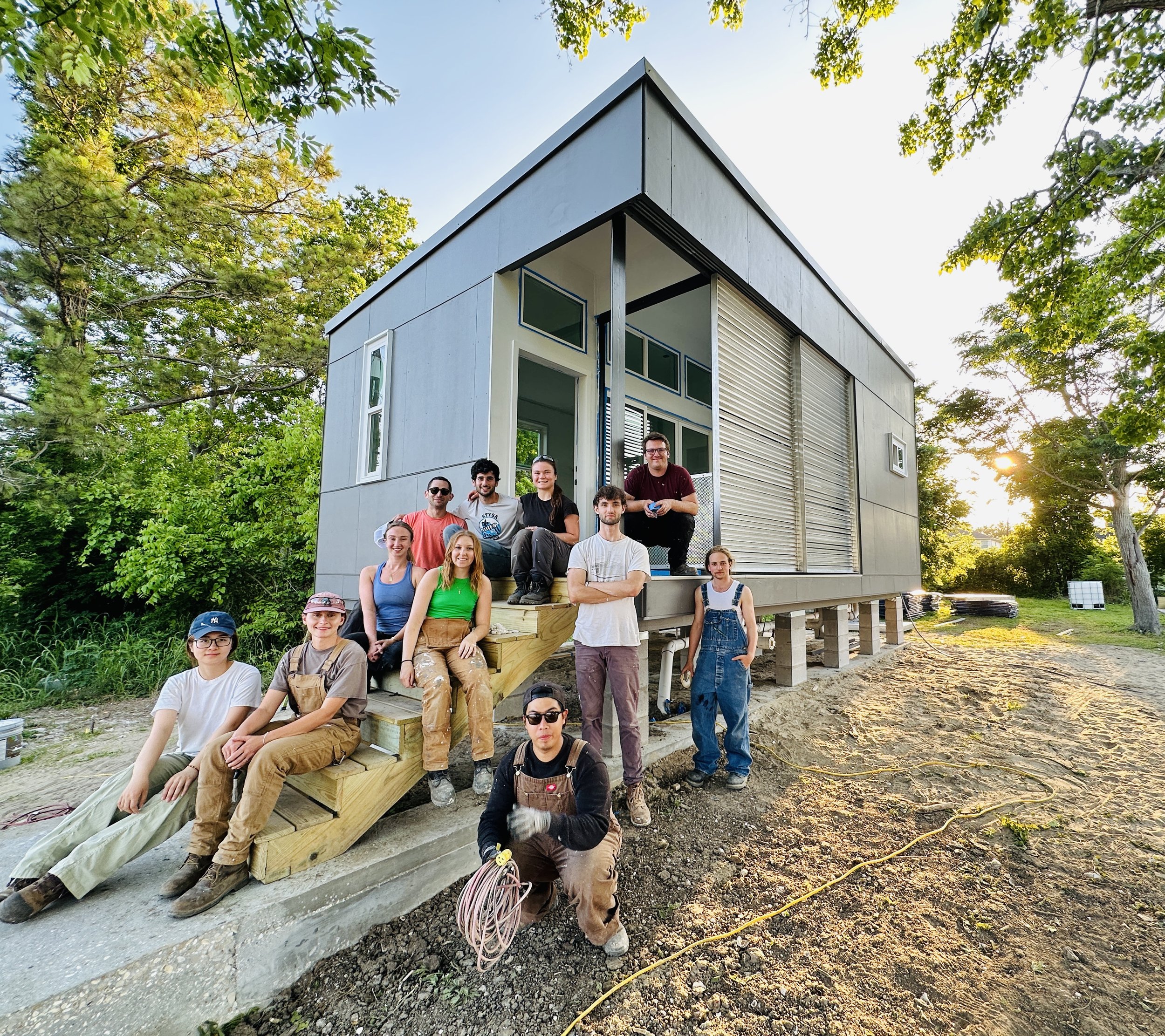URBANbuild 19 | 2228 Flood st.
a collaboration with the tulane school of architecture and louvis services.
This project was initially developed with no defined site or occupant. However, it was always intended to function as a “deployable” model home. The challenge of the assignment was to create a prototypical “Tiny-House” that can adapt to numerous programmatic applications: an accessory dwelling unit, a starter home, or infill housing. students were also asked to provide a model home that could easily be deployed and quickly assembled amidst dense urban settings. Therefore, the sizing of components was crucial to the project’s success.
In addition to portability, affordability also had to be carefully considered throughout the design/build process. These factors influenced the development of a prefabricated system of panels that could be “flat-packed” and delivered using a common quarter-ton pickup truck and a standard two-axle trailer. In addition, the construction system relies upon common building materials aiming to keep the vision achievable amidst various locations of the region.
Despite a reliance upon the standardized replicable assembly system, the prototype also provides opportunity for customization through variation in window, cladding and screening options. Late in construction of the prototype, a user and site were identified, and the project will be used as transitional housing for occupants escaping homelessness. That program greatly influenced final developments of the scheme’s secure covered outdoor porch, its screening, and its security – as it is expected that the user may initially experience comfort in transition by first sleeping on the porch.
project team
Brendan Cook, Elliot Slovis, Ryan Russel, Claire Fisher, Sarah Fisher, Sabrina LaFaye, Isabel Baum, Ben Brimer, Kuangji Zhang, Yi Wei, Riley Siltler, Noah Lion, Matt Bonomo, Jeremy Goldberg, Britini Crawford, Chris Kulik, Ella Weeks, Jessica Seidl, Madeline Shade, Ellen Flood




















